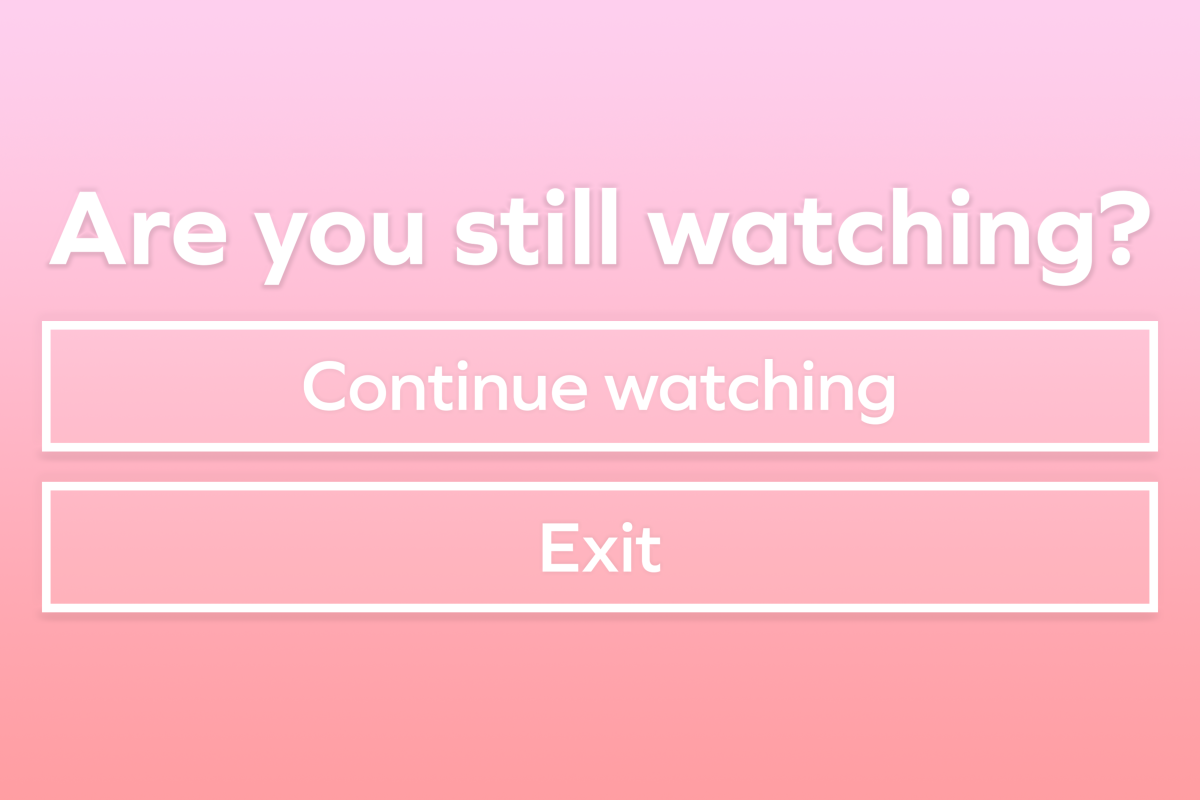It’s hard to escape reality shows when I turn on the TV. All I see is people bickering or falling in love, usually making me click away.
However, I never thought that reality TV could be a way to escape reality itself.
Thousands of people worldwide tune into dating shows like “The Bachelor” and “Love is Blind.” In February, the new season of Love is Blind brought 6.3 million viewers in the first week, debuting in second for Netflix’s top 10 shows, to Variety. The latest season of The Bachelor, which premiered in January, garnered 5.3 million views in the first week. Surely, so many people must watch these dating shows for a reason.
So I jumped on the bandwagon and thought I could try to get past the cringe of dating shows. Suddenly I’m on episode five of Love is Blind and on the edge of my seat after every engagement.
“Love is Blind” is a dating show where contestants meet their possible future partners in marriage through pods, looking for a partner through personal connection rather than looks. Without ever seeing each other before proposing, the couples meet once they’re engaged, however, the show tests if they’re truly compatible while living together. With only a month to spare, including talking in the pods, they have to decide whether to commit or dump each other at the altar.
Having only a month to decide on marriage sounded ridiculous to me. It seemed obvious that most couples would say “I don’t” at the altar. Yet, after watching a few episodes, my anticipation for the couples’ wedding days grew. Whether you’re rooting for a couple or just for the sole drama of it all “Love is Blind” builds that anticipation.
Even if the couples end up saying no on their wedding day (which is common), it’s almost like watching an epiphany moment, where the couples figure out their worth as individuals. You could almost relate to them because we’re all just people seeking our own validation.
A show I found hard to root for people turned out to be “Love Island (USA),” where contestants have to couple up and earn the reward of “favorite couple” to win $100,000. As newcomers join the game or the shared villa, it stirs up things as people want to split to be paired with someone else. I found it to be a fun, lighthearted show compared to other dating shows that are more tense, but I found the drama and messiness of the contestants a bit much for me.
I also watched “The Bachelor,” a dating show in which a group of women compete for one guy’s hand in marriage. The competition is real as the weeks go on, spanning over a month, as the women live together with high tensions. You can’t help but feel more worried for the women as the show progresses, which is something I remember from watching the dating show as a young teenager.
I stopped watching “The Bachelor” later in high school, which partly stemmed from the secondhand embarrassment from the contestants or if the person I rooted for got sent home. Once I realized that these couples often broke up after their engagement, I questioned the point of watching the show. However, I would still find myself becoming curious about the newest Bachelor drama as I scrolled through hashtags on X.
Alison Rather, a UT master’s student in science and marketing, said that watching “The Bachelor” began as a bonding experience with her grandma and grew as a stress-relieving hobby.
“I think that watching “The Bachelor” is like a great outlet for me to not think about school because school can just be so overwhelming at times with tests and midterms and assignments,” Rather said. “And so while watching a show, like Love is Blind or The Bachelor or even Love Island, it’s kind of just like a way for me to relax.”
As for what makes dating shows entertaining, Rather said that she can build a connection with the contestants, specifically in “The Bachelor,” where she also checks online updates on the women. Rather also doesn’t mind witnessing mess unfold when watching dating shows such as “Love Island,” as it’s a distraction from her own stress.
Dating shows are pointless, and that’s the point. It could be worth watching because you love the plot, a form of entertainment to relieve stress or connect with others.
“Everybody wanted to get together and watch “The Bachelor” together,” Rather said. “I’m very extroverted. So like, keeping that in mind, my way of unwinding is being with friends after having school all day, so that was a big community that brought us together. Now we’re like, what are we going to do on Mondays?”
Next in reality dating shows comes the new season of “The Bachelorette,” a spin-off of “The Bachelor,” which premieres in July 2024.
“I am a little hesitant on it whether or not it’s going to be entertaining, so I don’t know how invested I’ll be in that season,” Rather said. “If not, then I’m going to resort to some other outlets. Maybe I’ll start the UK Love Island.”
Who knows, maybe I’ll continue watching “Love is Blind.” I fear it already has me hooked.
































